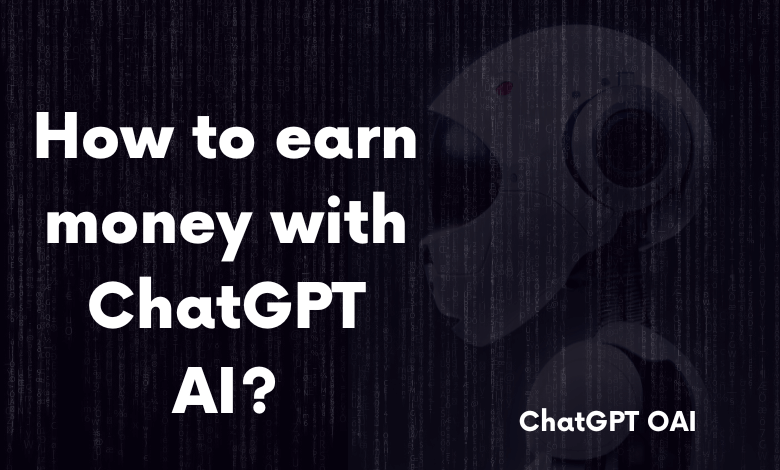Maximize your profits in stock trading with ChatGPT AI. Our 10 proven strategies will show you how to use AI to enhance your decision-making and increase your returns.
Contents
Introduction
Stock trading can be a challenging and confusing process, but with the help of ChatGPT AI, it is possible to maximize profits and achieve success in this industry. In this article, we will discuss how ChatGPT AI can help you make better investment decisions, increase efficiency, and maximize your profits in stock trading.
The ultimate goal of stock trading is to maximize profits, and ChatGPT AI can help you achieve this goal. By providing you with real-time insights, and recommendations, and automating various tasks, you can make better investment decisions, reduce the risk of error, and increase your chances of success. With ChatGPT AI, you can take your stock trading to the next level and achieve the results you want.
Maximizing Profits in Stock Trading with ChatGPT AI: 10 Proven Strategies
ChatGPT AI is a powerful tool that can help you achieve success in stock trading. With its ability to provide real-time insights, automate various tasks, and eliminate human error, it can make better investment decisions, increase efficiency, and maximize profits. If you are looking to take your stock trading to the next level, consider integrating ChatGPT AI into your process.
1. Real-Time Market Insights
ChatGPT AI can provide real-time insights into market trends, news, and financial data, giving traders a competitive advantage. For example, by analyzing news articles and analyst reports, ChatGPT AI can quickly identify market trends and changes, allowing traders to respond accordingly. This can help traders make more informed investment decisions and capitalize on opportunities in real time.
2. Predictive Analytics
ChatGPT AI can analyze vast amounts of data to predict stock performance and market trends. This predictive power can help traders make more informed investment decisions, reduce the risk of poor investments, and increase their chances of success. For example, ChatGPT AI can analyze financial statements and market data to predict the future performance of a particular stock.
3. Portfolio Optimization
ChatGPT AI can help traders optimize their portfolios by analyzing data and making recommendations based on market trends and stock performance. For example, ChatGPT AI can identify underperforming stocks and suggest alternative investments to help traders maximize their profits and reduce the risk of poor investments.
4. Diversification
Diversifying your investment portfolio can help reduce risk and increase profits. ChatGPT AI can analyze market trends and provide recommendations for diversifying your portfolio, helping traders achieve a balanced investment strategy. For example, ChatGPT AI can recommend a mix of stocks, bonds, and other investments to help traders diversify their portfolios and reduce the impact of market fluctuations.
5. Risk Management
ChatGPT AI can help traders manage risk by providing real-time insights and recommendations based on market trends and stock performance. For example, ChatGPT AI can identify stocks that are experiencing high volatility and suggest alternative investments to help traders reduce their risk.
6. Automated Data Analysis
ChatGPT AI can automate various tasks, such as data analysis, freeing up traders’ time and allowing them to focus on making informed investment decisions. For example, ChatGPT AI can analyze financial statements, market data, and news articles to provide real-time insights and recommendations, reducing the time and effort required for traders to stay informed.
7. Overcoming Human Bias
Human biases can impact investment decisions and reduce the chances of success in stock trading. ChatGPT AI operates objectively, analyzing data and providing recommendations based on facts and data. This can help traders make more informed investment decisions and overcome the impact of human bias.
8. Timing
Timing is critical in stock trading, and ChatGPT AI can help traders make informed decisions by providing real-time insights and recommendations. For example, ChatGPT AI can analyze market trends and news articles to identify the best time to buy or sell a particular stock, helping traders maximize their profits.
9. In-Depth Market Analysis
ChatGPT AI can provide in-depth stock market analysis, helping traders stay informed and make informed investment decisions. For example, ChatGPT AI can analyze market trends, news articles, and financial data to provide a comprehensive understanding of market conditions and opportunities.
10. Integration with Trading Platforms
One of the key advantages of using ChatGPT AI in stock trading is the ability to integrate it with a variety of trading platforms. This integration allows traders to receive real-time updates and insights directly from the AI system, saving time and reducing the risk of human error. Additionally, traders can use the AI system to analyze large amounts of data and make informed trading decisions, increasing their chances of making a profit.
Conclusion
ChatGPT AI can play a significant role in predicting stock trading profits and improving the results of your investments. incorporating ChatGPT AI into stock trading strategies can bring numerous benefits and opportunities for traders. From analyzing large amounts of data to making informed decisions to reduce the risk of human error and increase the chances of making a profit, ChatGPT AI offers a multitude of advantages for stock traders. The 10 strategies discussed in this article provide a comprehensive guide for traders looking to maximize profits with ChatGPT AI in the stock trading industry. By using a combination of these strategies and continuously adapting to market changes, traders can stay ahead of the competition and achieve long-term success. With its ability to analyze vast amounts of data, provide real-time insights and recommendations, and overcome human bias, it is a powerful tool for traders looking to maximize their profits and achieve success in the stock market. incorporating ChatGPT AI into stock trading strategies can bring numerous benefits to traders. From real-time insights and improved accuracy of trading decisions to reduced risk of human error and increased chances of making a profit, ChatGPT AI has the potential to revolutionize the stock trading industry. The integration of ChatGPT AI with trading platforms is just one of the many ways traders can utilize this tool to maximize profits in the competitive world of stock trading.
Frequently Asked Questions
What is ChatGPT AI and how does it work in stock trading?
ChatGPT AI is a language model developed by OpenAI that has been trained on a vast amount of data to understand and generate human-like text. In the context of stock trading, ChatGPT AI can be used to analyze vast amounts of financial data and make informed decisions on buying and selling stocks.
What are the benefits of using ChatGPT AI in stock trading?
The benefits of using ChatGPT AI in stock trading include improved accuracy of trading decisions, reduced risk of human error, increased chances of making a profit, and real-time insights into market trends and performance.
How can ChatGPT AI help traders make more informed decisions?
ChatGPT AI can help traders make more informed decisions by analyzing large amounts of financial data and providing real-time insights into market trends and performance. This information can then be used to make informed decisions on buying and selling stocks.
What are the 10 strategies for maximizing profits with ChatGPT AI in stock trading?
The 10 strategies for maximizing profits with ChatGPT AI in stock trading are: 1) Utilizing real-time insights and market analysis, 2) Incorporating sentiment analysis, 3) Utilizing historical data to make informed decisions, 4) Integrating ChatGPT AI with trading platforms, 5) Implementing risk management strategies, 6) Monitoring news and social media, 7) Using predictive analytics, 8) Continuously learning and adapting 9) Incorporating expert opinions, and 10) Staying ahead of the competition.
How can ChatGPT AI help traders reduce the risk of human error?
ChatGPT AI can help traders reduce the risk of human error by automating the analysis of financial data and removing the emotional biases that often affect human decision-making in stock trading.
How can ChatGPT AI be integrated with trading platforms?
ChatGPT AI can be integrated with trading platforms through APIs that allow for real-time communication between the platform and the AI model. This integration allows traders to access the insights and analysis generated by ChatGPT AI in real time while using their preferred trading platform.
What is sentiment analysis and how can it be used in stock trading with ChatGPT AI?
Sentiment analysis is the process of using natural language processing to analyze the sentiment expressed in text, such as news articles, social media posts, or analyst reports. This information can be used in stock trading to make informed decisions on buying and selling stocks based on market sentiment.
How can historical data be used to make informed decisions in stock trading with ChatGPT AI?
Historical data can be analyzed by ChatGPT AI to identify patterns and trends in the stock market. This information can then be used to make informed decisions on buying and selling stocks, as well as to make predictions on future market performance.
How can traders stay ahead of the competition with ChatGPT AI in stock trading?
Traders can stay ahead of the competition by continuously learning and adapting to market changes, incorporating expert opinions, and staying up-to-date on news and social media trends. ChatGPT AI can help traders achieve this by providing real-time insights and analysis into market trends and performance.
Can ChatGPT AI replace human traders in stock trading?
ChatGPT AI is a powerful tool that can assist human traders in stock trading. However, it is not designed to replace human traders altogether. There are certain tasks that AI is still unable to perform, such as emotional and intuitive decision-making, which human traders excel at.





